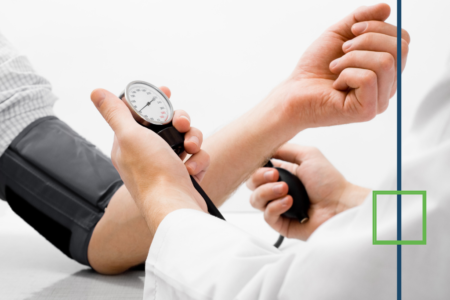Define PTSD
Posttraumatic stress disorder (PTSD) and substance use disorders (SUDs) are prevalent and frequently co-occur. [1] Comorbid PTSD/SUD is associated with a more complex and costly clinical course when compared with either disorder alone, including:
- Increased chronic physical health problems
- Poorer social functioning
- Higher rates of suicide attempts
- More legal problems
- Increased risk of violence
- Worse treatment adherence
- Less improvement during treatment
In response, psychosocial treatment options and dual diagnosis treatment have increased substantially over the past decade and integrated approaches – treatments that address symptoms of both PTSD and SUD concurrently –are fast becoming the preferred model for treatment.
PSTD vs PTSI Symptoms
Re-experiencing is the most typical symptom of PTSD and PTSI. This is when a person involuntarily and vividly relives the traumatic event in the form of:
- Flashbacks
- Nightmares
- Repetitive and distressing images or sensations
- Physical sensations, such as pain, sweating, feeling sick or trembling

Some people have constant negative thoughts about their experience, repeatedly asking themselves questions that prevent them from coming to terms with the event. For example, they may wonder why the event happened to them and if they could have done anything to stop it, which can lead to feelings of guilt or shame.

Get Your Life Back
Find Hope & Recovery. Get Safe Comfortable Detox, Addiction Rehab & Dual Diagnosis High-Quality Care.
Hotline(844) 597-1011What Is PTSI VS PTSD?
According to posttraumaticstressinjury.org, the name PTSD has helped all of us who care about trauma and its consequences. But the name has also been a source of stigma. The “D” in PTSD, the word, “disorder,” discourages some from seeking care, from revealing their condition, and from feeling a sense of honor, when their PTSD is just as honorable as any physical injury. When an injury is earned in battle, awards are given. There is no Purple Heart for PTSD. While the APA uses the term, “disorder,” for most diagnoses, there are many diagnoses without that word, Anorexia, Bulimia, Parasomnia, and Social Phobia to name a few.
The former Vice Chief of Staff of the Army, an advocate for reducing the stigma of PTSD, argues strongly in favor of dropping the word, “disorder,” because, “disorder” perpetuates a bias and “has the connotation of being something that is a pre-existing problem that an individual has” before they came into the Army and “makes the person seem weak.”
In a letter to the President of the American Psychiatric Association, Frank Ochberg and Jonathan Shay endorsed General (ret) Chiarelli’s position, adding their own reasoning for a new name: Post Traumatic Stress Injury. Ochberg and Shay believe that the “injury model” and the injury name are correct from a medical and a public perception point of view. [2]
Changing PTSI VS PTSD
In the last few years, an argument has been made that changing the name of the PTSD condition to Post-Traumatic Stress Injury (PTSI) may remove some barriers to seeking help for affected individuals. PTSI vs PTSD, those in favor of the change argue that the word ‘disorder’ is stigmatizing—no one wants a ‘disorder,’ let alone to seek treatment for one. A secondary argument has been that the word ‘injury’ provides a better description in the context of trauma causing a physical injury to brain physiology.

Get Help. Get Better. Get Your Life Back.
Searching for Accredited Drug and Alcohol Rehab Centers Near You?
Even if you have failed previously and relapsed, or are in the middle of a difficult crisis, we stand ready to support you. Our trusted behavioral health specialists will not give up on you. When you feel ready or just want someone to speak to about therapy alternatives to change your life call us. Even if we cannot assist you, we will lead you to wherever you can get support. There is no obligation. Call our hotline today.
(844) 597-1011Difference Between PTSD And PTSI
According to the Journal of Military and Veterans’ Health, Some proponents of PTSI argue that PTSD is a biological trauma, as there is evidence it responds to biological treatment such as Stellate Ganglion Blocks. A stellate ganglion block is an injection of medication into these nerves that can help relieve pain in the head, neck, upper arm, and upper chest.
Changing PTSD To PTSI
They argue that the affected person is not ‘disordered,’ but instead, that brain function is ‘injured.’ The DSM-5 definition of mental disorder, however, does point to biological dysfunction, which is arguably a better description of PTSD than ‘injury’, which implies a wound or physical damage. Indeed, experts concluded that the term ‘injury’ should be reserved for cases where an external physical force is the direct cause of the reaction. Furthermore, while a condition may respond to biological treatment, this does not necessarily mean that the trauma is purely biological in nature. [3]
Who Is Affected By PTSI VS PTSD?
Anyone can develop PTSI vs PTSD at any age. This includes war veterans, children, and people who have been through a physical or sexual assault, abuse, accident, disaster, or other serious events. According to the National Center for PTSD, about 7 or 8 out of every 100 people will experience PTSD at some point in their lives. [4]
First-class Facilities & Amenities
World-class High-Quality Addiction & Mental Health Rehabilitation Treatment
Rehab Centers TourRenowned Addiction Centers. Serene Private Facilities. Inpatient rehab programs vary.
Addiction Helpline(844) 597-1011Proven recovery success experience, backed by a Team w/ History of:
15+
Years of Unified Experience
100s
5-Star Reviews Across Our Centers
10K
Recovery Success Stories Across Our Network
- Low Patient to Therapist Ratio
- Onsite Medical Detox Center
- Comprehensive Dual-Diagnosis Treatment
- Complimentary Family & Alumni Programs
- Coaching, Recovery & Personal Development Events
PTSI VS PTSD In The Military
How Common Is Co-occurring PTSI vs PTSD and SUD in Veterans?
- More than 2 of 10 Veterans with PTSD also have SUD.
- Almost 1 out of every 3 Veterans seeking treatment for SUD also has PTSD.
- The number of Veterans who smoke (nicotine) is almost double for those with PTSD (about 6 of 10) versus those without a PTSD diagnosis (3 of 10).
- In the wars in Iraq and Afghanistan, about 1 in 10 returning Veterans seen in VA have a problem with alcohol or other drugs.
- War Veterans with PTSD and alcohol problems tend to binge drink. Binge drinking is when a person drinks a lot of alcohol (4-5 drinks or more) in a short period of time (1-2 hours). [5]
PTSI VS PTSD Treatment
The experts who are proposing to change the name of PTSI vs PTSD acknowledge that there are barriers to seeking treatment for PTSD and other mental disorders in serving members and veterans, and that removal of these barriers and encouraging affected individuals to seek treatment early is an important goal. However, there is no evidence that changing the name of one condition will reduce stigma, remove barriers to care or strengthen recovery.
Someone with a dual diagnosis must treat both conditions. For the treatment to be effective, you need to stop using alcohol or drugs. Treatments may include behavioral therapies and medications. Also, support groups can give you emotional and social support. They are also a place where people can share tips about how to deal with day-to-day challenges.
A person with a dual diagnosis has both a mental disorder and an alcohol or drug problem. These conditions occur together frequently. About half of people who have a mental disorder will also have a substance use disorder at some point in their lives and vice versa. The interactions of the two conditions can worsen both. [6]
World-class, Accredited, 5-Star Reviewed, Effective Addiction & Mental Health Programs. Complete Behavioral Health Inpatient Rehab, Detox plus Co-occuring Disorders Therapy.
CALL(844) 597-1011End the Addiction Pain. End the Emotional Rollercoaster. Get Your Life Back. Start Drug, Alcohol & Dual Diagnosis Mental Health Treatment Now. Get Free No-obligation Guidance by Substance Abuse Specialists Who Understand Addiction & Mental Health Recovery & Know How to Help.
How We Can Help? Searched for “Difference of PTSI vs PTSD treatment” or are you seeking a national dual diagnosis inpatient rehab destination?
A good dual diagnosis drug treatment program and drug addiction therapy facility need to be able to treat both conditions without treating one as the sole cause of the other. Addiction is a complicated disease and no one thing is to blame for it. There are various options available to handle drug addiction therapy.
A good drug treatment program will offer several levels of therapy as well as multiple treatment options. This allows the rehabilitation facility to meet the individual needs of its patients.
Most programs begin with a detox process to remove the physical dependence on any substances then a residency program. This type of program can last as long as two months and is designed to provide intensive focused therapy in a controlled environment to help you get over the first hurdle and give you the tools necessary to face the cravings and temptations of everyday life.

During the inpatient treatment process, dual diagnosis cases are identified and treatment begins. The next step is an intensive outpatient drug treatment program that provides drug addiction therapy by meeting at the site several times a week for intensive therapy that can help you deal with what occurs in daily life. Finally, a standard outpatient therapy program provides the continued support necessary to maintain a sober condition.
Receive treatment for co-occurring disorders today.
As the addiction treatment community begins to realize that addiction is itself a mental disorder, the relationship between substance abuse and mental disorders becomes more complicated. The greater treatment community largely lacks a proper understanding of dually diagnosed conditions, so these conditions are still treated separately, or worse–not treated or diagnosed at all. Our dual diagnosis treatment centers in We Level Up Florida, California, Texas, and New Jersey are some of the facilities that have professionals trained to help treat co-occurring disorders concurrently. This type of tandem treatment provides some of the best success rates.
Get dual diagnosis treatment for individuals struggling with substance abuse and confused with PTSI vs PTSD. Call us today!
Experience Transformative Recovery at We Level Up Treatment Centers.
See our authentic success stories. Get inspired. Get the help you deserve.
Start a New Life
Begin with a free call to an addiction & behavioral health treatment advisor. Learn more about our dual-diagnosis programs. The We Level Up Treatment Center Network delivers recovery programs that vary by each treatment facility. Call to learn more.
- Personalized Care
- Caring Accountable Staff
- World-class Amenities
- Licensed & Accredited
- Renowned w/ 100s 5-Star Reviews
We’ll Call You
Sources:
[1] Posttraumatic Stress Disorder and Co-Occurring Substance Use Disorders: Advances in Assessment and Treatment – National Center for Biotechnology Information
[2] PTSINJURY – https://posttraumaticstressinjury.org/
[3] Post-Traumatic Stress Disorder or Post-Traumatic Stress Injury: What’s in a name? – https://jmvh.org/article/post-traumatic-stress-disorder-or-post-traumatic-stress-injury-whats-in-a-name/
[4] Post-Traumatic Stress Disorder – The National Institute of Mental Health (NIMH)
[5] PTSD and Substance Abuse in Veterans – U.S. Department of Veterans Affairs
[6] Dual Diagnosis – U.S. Department of Health and Human Services National Institutes of Health


